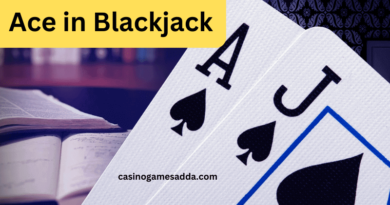This means that, over time, you’ll lose more money playing a 6:5 blackjack table. If possible, it’s always best to play at a table that pays 3 to 2 for a natural blackjack. If you can’t find a 3 to 2 table, consider playing a different game or casino that offers better odds.
Taking Insurance
Taking insurance in blackjack is a side bet that the dealer has a natural 21 (blackjack) and is offered when the dealer has an Ace showing. If the dealer does have blackjack, the insurance bet pays out 2 to 1. If the dealer does not have blackjack, the insurance bet loses and the round continues as normal.
While insurance may seem like a good idea, it’s generally a losing bet for the player. This is because the odds of the dealer having blackjack are only about one in three, and the 2 to 1 payout is not enough to offset the frequent losses.
Most experts recommend avoiding taking insurance, as it increases the overall house edge and reduces the player’s chances of winning. Instead, focus on basic strategy and maximizing your winnings through the main game.
Splitting Tens
Splitting tens in blackjack is a common mistake made by beginner players. While it may seem logical to split a pair of 10s to try and get two good hands, it actually decreases your chances of winning.
When you split tens, each hand is treated as a separate hand, so each hand will start with a 10-value card. While having two hands with 10-value cards may seem advantageous, it actually puts you in a weaker position, as there’s a higher chance of busting (going over 21) with either hand.
Additionally, splitting tens reduces your expected return on each hand, as the dealer is more likely to have a strong hand when you split 10s.
In general, it’s best to stand with a pair of tens, as it gives you a high starting hand with a good chance of winning. Splitting tens is a costly mistake that should be avoided.
Standing on Specific Hard Hands
Standing on specific hard hands in blackjack is another common mistake that can cost players money. A hard hand is a hand without an Ace or a hand with an Ace that can only be counted as 1.
In blackjack, there are specific hands where it is best to stand, even if it may seem counter-intuitive. For example, if you have a hand total of 17 or higher, it’s usually best to stand, as hitting with such a hand increases the chances of going over 21 and losing the hand.
However, some players make the mistake of standing on specific hard hands too early, without considering the dealer’s up-card. For example, if the dealer is showing a 7 or higher, it may be better to hit with a hard hand, as the dealer is more likely to bust.
Therefore, when playing blackjack, it’s important to understand the best strategies for specific hands and to use those strategies in combination with information about the dealer’s up-card to make the best decisions. By avoiding the mistake of standing on specific hard hands too early, players can improve their chances of winning.



